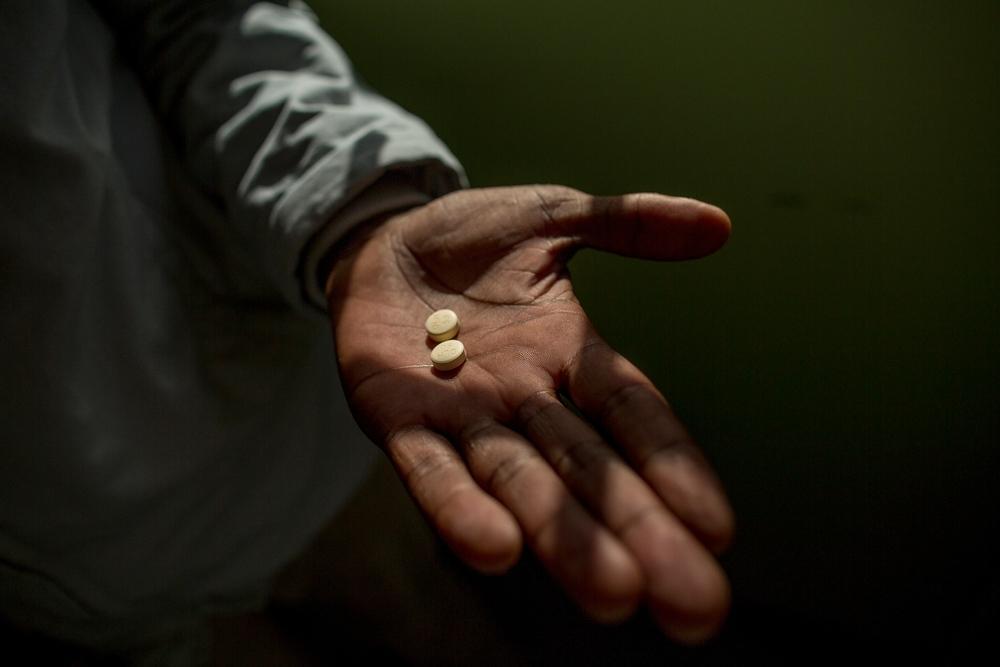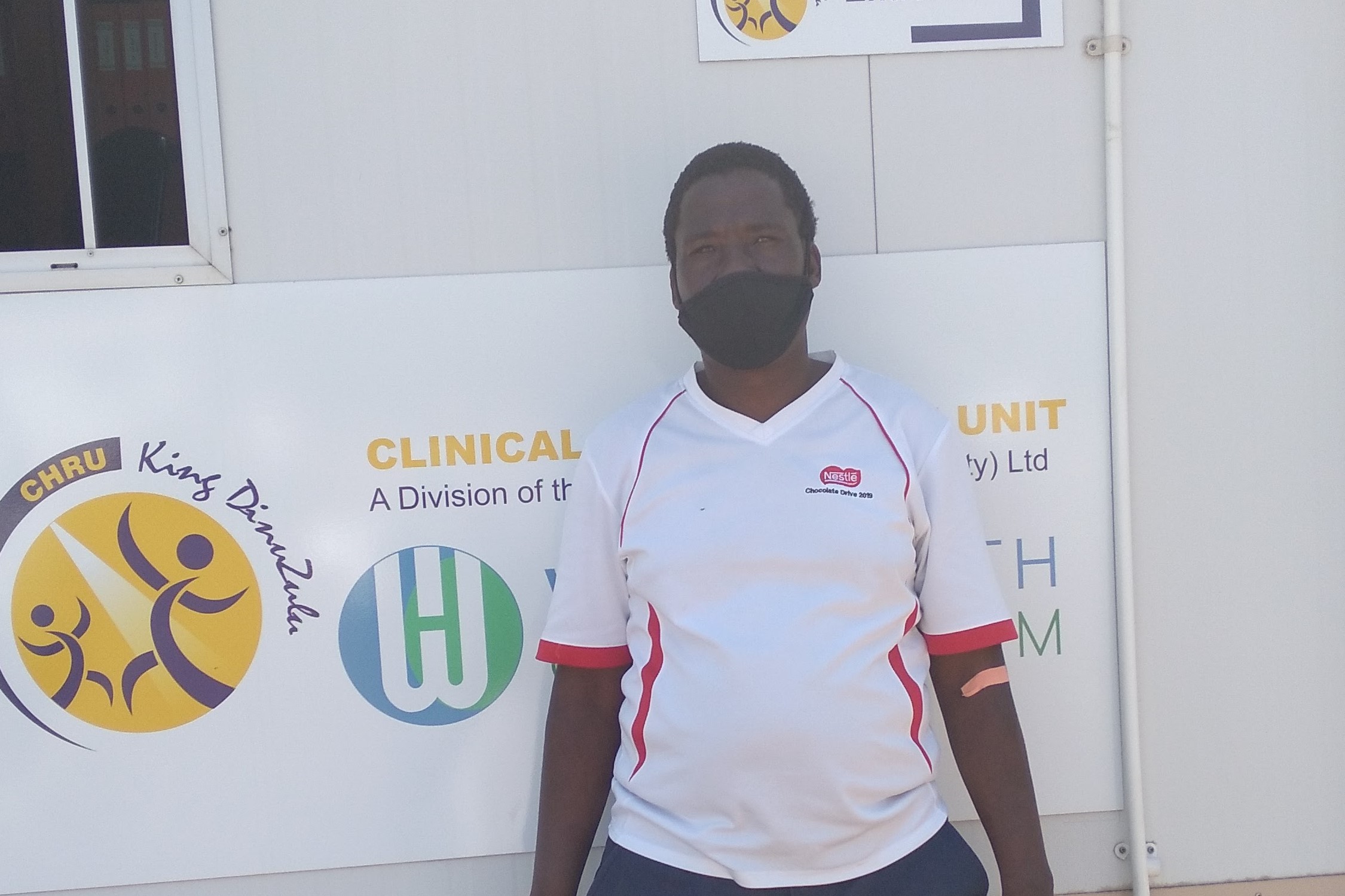World TB Day 2022: “My plea to all who have lost hope - believe once again”
Nhlanhla Mshengu took part in TB PRACTECAL, an MSF-supported clinical trial to find short, tolerable and effective treatments for people with multidrug-resistant tuberculosis (MDR-TB). This is his inspiring story.
"My name is Nhlanhla Mshengu from uMgababa south of Durban in KwaZulu-Natal, South Africa.
I had been diagnosed and put on a pulmonary tuberculosis (TB) treatment, in my local clinic, for over a year before it was discovered that I had multidrug-resistant TB (MDR-TB).
It was then that I was referred to a Clinical HIV Research Unit (CHRU), in King Dinuzulu Hospital.
I was informed that this clinic had specialised services for the treatment of multidrug-resistant and extensively drug-resistant TB (XDR-TB) and is involved in measures to develop a most efficient and safe TB cure.
At the clinic, I was recruited and enrolled in the TB PRACTECAL clinical trial. Participants were randomly assigned to take either the standard treatment, or one of the new drug combinations. I was put in the group which got the new treatment.
During the time when I was still using the ordinary TB treatment, I used to suffer a lot because my condition would stay the same for months.
At this stage I had given up hope and had written my own Will as I thought I would never survive this ordeal, until they discovered that I had MDR-TB and referred me for MDR-TB treatment.
My condition improved drastically to such an extent that it took me only one month to get out of bed and return to my workplace.
Encouraging others
The doctors and nurses at the hospital advised me to take things slowly, not to stress my body so that the treatment regimen could work properly.
I was also informed on how to follow the trial procedures and processes accordingly.
That was very helpful to me as I was following the instructions and taking my medication as prescribed.
I used to visit the clinic for check-ups and other tests on a regular basis.
After about three months the trial doctors told me that my health condition had gradually returned to normal and they were going to move me to another stage of the trial for follow-up.
At this stage I had also started encouraging other patients to participate in such projects, especially because they entail only oral treatment, as opposed to the injections we were getting previously.
The injections were not comfortable and the treatments took too long which led to many people defaulting from treatment.
Trial procedures are not difficult and one does not spend a lot of time at the clinic. A day’s visit can easily last 30 minutes.
Even though I now feel very much healthy, I still follow the trial processes by adhering to treatment and turning up for follow up visits.
It is through the good work and patience of the trial staff that I bear testimony that even MDR-TB can be cured and it is my plea to all those, like me in the past, who have lost hope in the health system to believe once again and give it a try.
There are so many people in our community that have MDR-TB but are reluctant to seek help, therefore I urge them to take this opportunity to be treated in a facility like the Clinical HIV Research Unit when they are called to participate. I am living proof that their regimen does indeed work.
“I stand tall”
In my experience, the process was handled very professionally, and a high standard of confidentiality is maintained which made it easy for me to ask and answer questions. The trial staff exercise their duties with patience and caution.
I also wish to say that all of the team at the hospital had a hand in getting me where I am today, my family is happy and I can see a bright future ahead and I attribute this to all of their assistance in getting my life back, I thank them dearly.
As I said earlier, my experience of being in and out of clinics and hospitals was so painful before they discovered that I had MDR-TB, I was suicidal.

Help us prepare for the next emergency
I had written and discussed my own Will with my family. Today I look back to those days with tears in my eyes for nearly robbing my children of a father, but those tears are not of pain anymore but of joy for having accepted the opportunity to be in the TB PRACTECAL clinical trial and to have emerged a victor against MDR-TB.
Although I am still in the follow up stages, I stand tall because I have seen the light at the end the tunnel."
TB PRACTECAL
TB PRACTECAL is a cutting-edge phase II/III clinical research project to find short, tolerable and effective treatments for people with drug-resistant tuberculosis (DR-TB).
Initial results show that the new all-oral six-month treatment regimen is safer and more effective at treating DR-TB than the current accepted standard of care.

